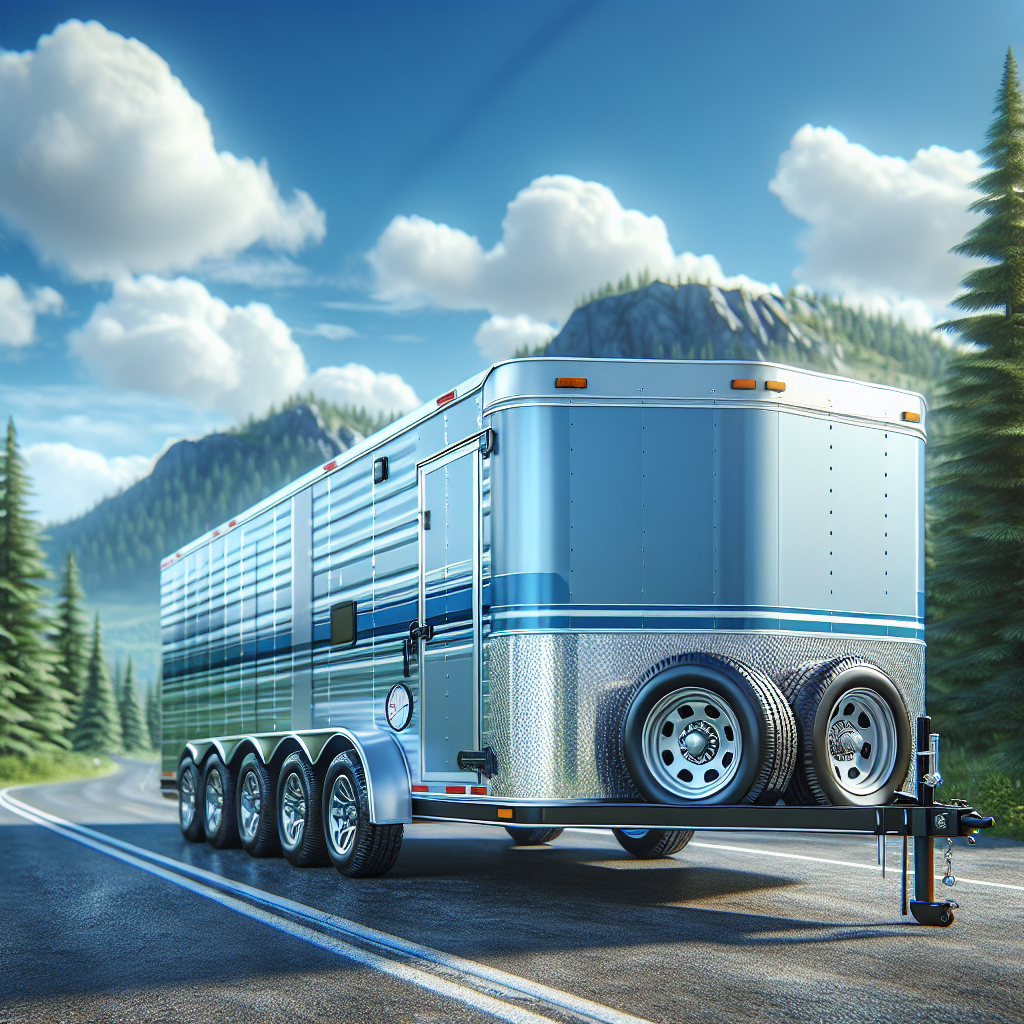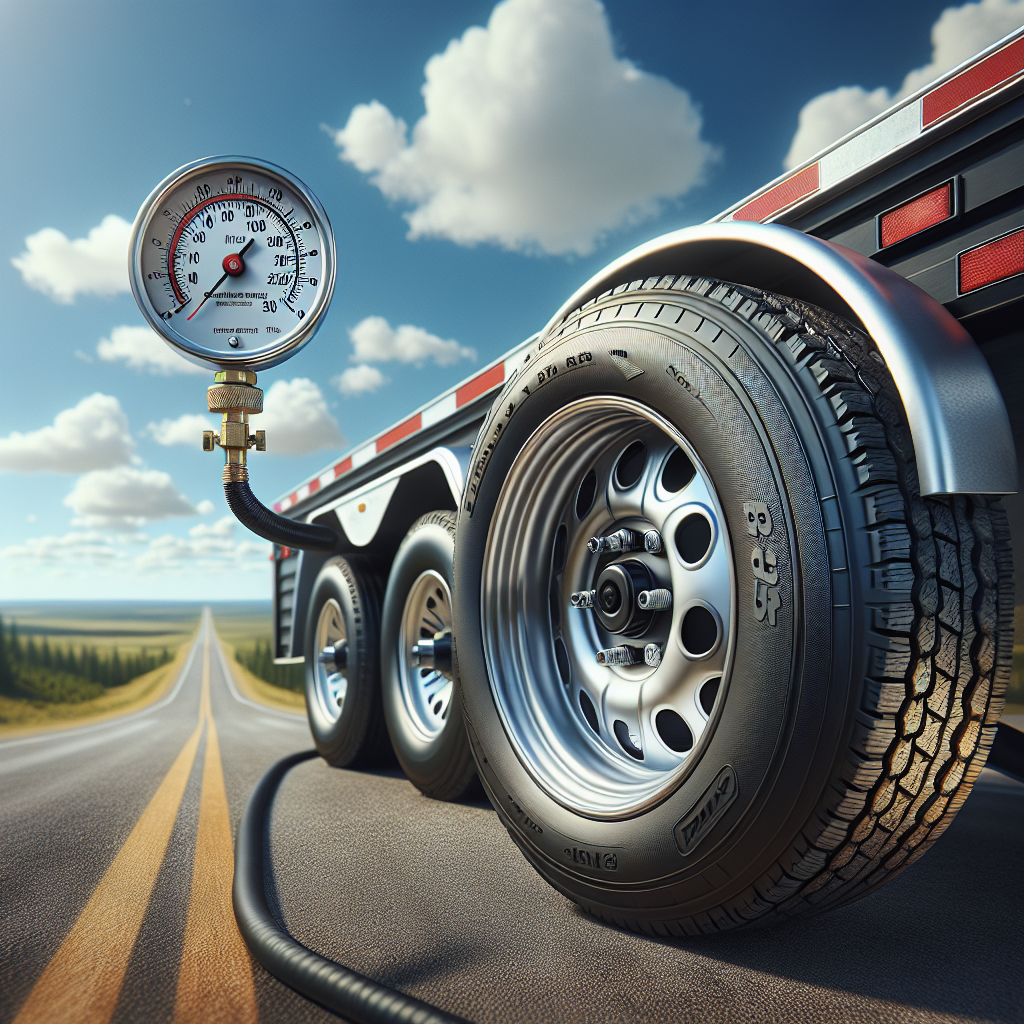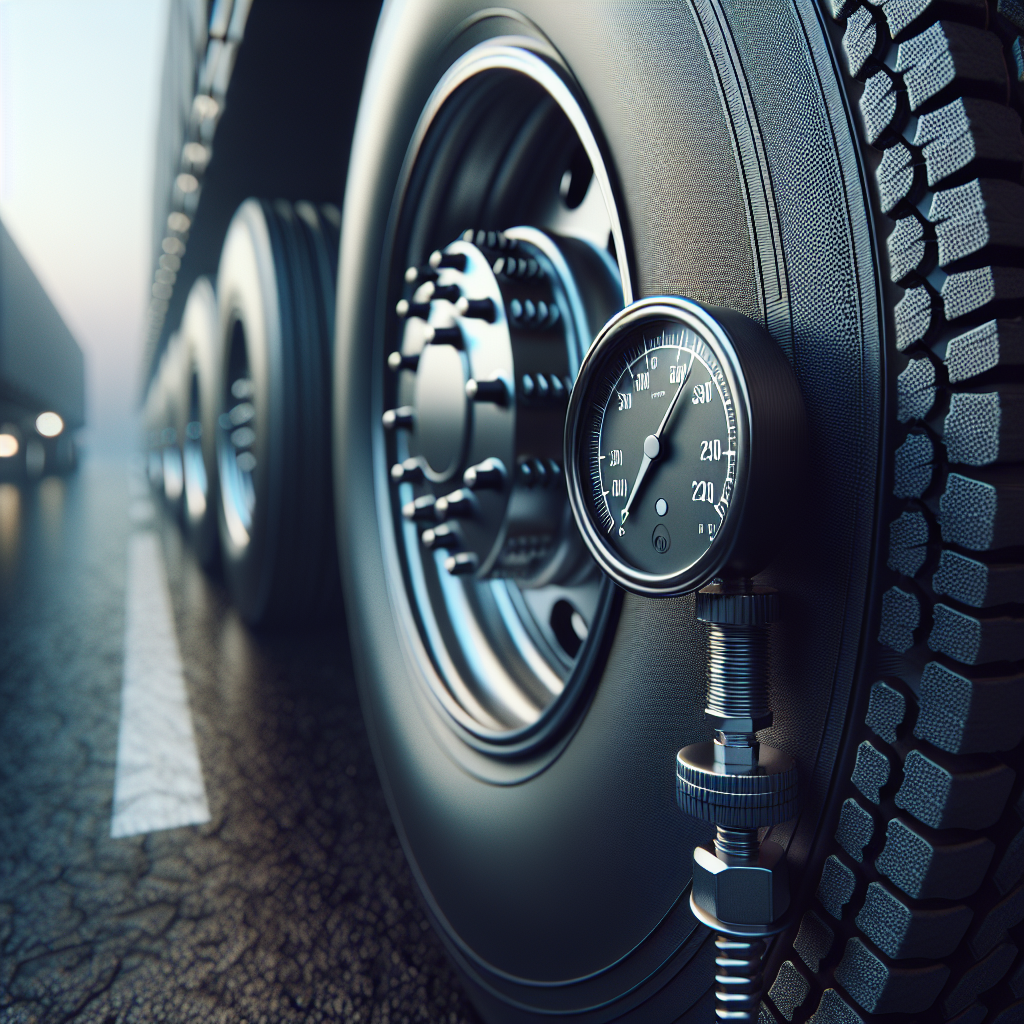Maintaining the right air pressure in your trailer tires is crucial for ensuring optimal performance and safety. When considering how much air pressure should be in a trailer tire, it’s essential to refer to the manufacturer’s recommendations, which are typically found on a label affixed to the trailer or in the owner’s manual.
Proper tire pressure affects various aspects of your trailer’s operation:
- Safety: Under-inflated tires can lead to blowouts, increasing the risk of accidents on the road.
- Fuel Efficiency: Correct tire pressure improves fuel economy by reducing rolling resistance.
- Tire Longevity: Maintaining optimal pressure helps prevent uneven wear, extending the life of your tires.
As a rule of thumb, most trailer tires operate best with a pressure range of 50 to 80 PSI, but this can vary based on the weight load and tire type. Additionally, it's advisable to check tire pressure regularly, especially before long trips or after significant temperature changes, as air expands and contracts with varying temperatures.
To ensure your trailer is always ready for the road, consider investing in a tire monitoring system. Tow with peace of mind, knowing that trailerwatchdog is standing guard.
Why Proper Air Pressure Matters for Trailers
Understanding why proper air pressure matters for trailers can significantly enhance both safety and performance. Many trailer owners underestimate the importance of maintaining the correct tire pressure, leading to various issues that could easily be avoided.
One of the most critical reasons to monitor trailer tire pressure is safety. Under-inflated tires can lead to reduced traction, especially on wet or uneven surfaces, increasing the likelihood of skidding or losing control. Moreover, tires that are not properly inflated generate excess heat, which can result in catastrophic blowouts while on the road.
Proper air pressure also directly impacts the handling and stability of your trailer. Over-inflated tires may lead to a harsh ride and can decrease the contact patch with the ground, making the trailer more prone to swaying. Conversely, under-inflated tires may cause excessive tire flex, affecting steering responsiveness and overall control.
Furthermore, maintaining the correct tire pressure can improve fuel efficiency. When tires are inflated to the recommended levels, they roll more easily, requiring less effort from the vehicle’s engine and ultimately saving on fuel costs over time.
In addition to safety and performance, proper tire pressure plays a significant role in extending the life of your tires. Even tire wear and reduced risk of damage result from maintaining the optimal pressure, providing a better return on your investment.
How to Determine Ideal Tire Pressure

Determining the ideal tire pressure for your trailer is essential for ensuring safety, performance, and longevity. The first step in this process is to consult the manufacturer's guidelines, which often include a sticker located on the trailer's frame or in the owner’s manual. This information typically provides the recommended tire pressure based on the trailer's weight and usage.
Next, invest in a reliable tire pressure gauge. These devices come in various forms, including digital and analog models, and allow you to measure the pressure in your tires accurately. To get the most accurate reading, follow these steps:
- Check when tires are cold: Tire pressure can vary significantly with temperature. It's best to check the pressure before the trailer has been in use, as driving can heat up tires and increase pressure readings.
- Remove the valve cap: Unscrew the valve cap from the tire you are checking.
- Press the gauge onto the valve stem: Make sure to apply enough pressure to get a reading, but avoid pressing too hard, as this might result in an inaccurate measurement.
- Read the pressure: Note the reading on the gauge and compare it to the manufacturer's recommended pressure.
If you find that the tire pressure is too low, inflate the tire using an air compressor. Conversely, if the pressure is too high, release some air until it reaches the ideal level. Regularly checking and adjusting your tire pressure can prevent potential issues and ensure a safer towing experience.
Effects of Underinflated and Overinflated Tires

Understanding the effects of both underinflated and overinflated tires is crucial for maintaining the safety and performance of your trailer. Underinflated tires can lead to a range of serious issues:
- Increased Wear: Tires that are not inflated to the proper pressure will wear unevenly, often leading to premature tire failure.
- Poor Handling: Low tire pressure can significantly affect your trailer's stability and handling, making it harder to maneuver, especially during turns or in adverse weather conditions.
- Heat Buildup: Insufficient air pressure causes excessive heat buildup, which can lead to blowouts or catastrophic tire failure on the road.
On the other hand, overinflated tires also pose their own set of risks:
- Reduced Traction: Tires that are too inflated have a smaller contact patch with the road, leading to decreased traction, especially in wet or slippery conditions.
- Harsh Ride: Overinflation can result in a stiffer ride, as the tires cannot absorb shocks from bumps and potholes effectively, making the journey uncomfortable.
- Increased Risk of Damage: Higher pressures make the tires more susceptible to damage from road debris and sharp objects, increasing the likelihood of punctures.
Both underinflation and overinflation can lead to serious safety hazards, impacting not only your trailer but also the safety of other road users. Regularly checking your tire pressure and adjusting it to the manufacturer's recommendations is essential for ensuring a safe towing experience.
Tips for Maintaining Proper Tire Pressure

Maintaining the correct tire pressure is vital for the longevity of your trailer tires and the safety of your towing experience. Here are some practical tips for ensuring your tires remain at optimal pressure:
- Regularly Check Tire Pressure: Make it a habit to check your tire pressure at least once a month and before long trips. Use a reliable tire pressure gauge to obtain accurate readings.
- Know the Recommended Pressure: Refer to the trailer’s owner manual or the placard usually found on the side of the trailer to determine the manufacturer’s recommended tire pressure.
- Inspect Tires Before Each Trip: Look for signs of wear and damage, including cracks, bulges, and uneven wear patterns. This can help identify issues before they become serious problems.
- Adjust for Load: If you plan to carry heavier loads, ensure that you adjust your tire pressure accordingly to accommodate the increased weight.
- Check Pressure When Cold: Always measure tire pressure when the tires are cold, as driving heats them up and can give inaccurate readings.
- Use a Quality Air Compressor: When inflating tires, use a quality air compressor to ensure that you achieve the correct pressure without overinflating.
By following these tips, you can maintain the right tire pressure, enhancing your trailer's performance and safety. Proper tire maintenance not only extends the life of your tires but also contributes to a more efficient towing experience.
Using Smart Monitoring Systems for Tire Safety

In today's technological age, utilizing smart monitoring systems enhances tire safety and performance significantly. These advanced systems provide real-time data about your trailer's tire conditions, alerting you to any potential issues before they escalate into serious problems.
Some key benefits of using smart monitoring systems for tire safety include:
- Real-Time Monitoring: Get instant updates on tire pressure, temperature, and other critical metrics, allowing you to make informed decisions on the road.
- Alerts and Notifications: Receive alerts for any abnormal tire conditions, such as low pressure or excessive heat, enabling you to take immediate action.
- Data Logging: Monitor tire performance over time, helping you identify patterns that may indicate wear or potential failure, facilitating better maintenance planning.
- Increased Safety: With continuous monitoring, you reduce the risk of tire blowouts and other failures, ensuring safer travels.
Investing in a smart monitoring system, like those offered by TrailerWatchdog, turns any trailer into a smart trailer. By integrating advanced technology, you can enjoy peace of mind while towing.
Tow with peace of mind, knowing that trailerwatchdog is standing guard.








